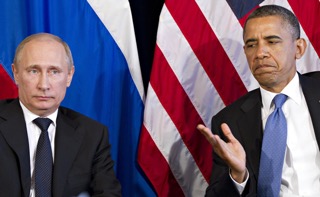
No more a proxy war. New powers involved in the Syrian quagmire
External Relations 12 October 2015It is unconceivable that the European Union does not understand how much important the Middle East is for its health. Or maybe it is just a political strategy.
In fact, even if the EU is strongly hit by the Syrian crisis – just having to cope with many thousands of refugees trying to escape the conflict – the Brussels headquartered institutions were quiet and silent while Russia started its huge military intervention (the biggest ever managed by Russia) in the Middle East on the 30th of September.
The eastern quagmire has added a (not so) new player to its complex storyline. Russia, until nowadays, has played as an outsider force in this area, pulling the strings from a favourable and not directly implied position. This last intervention has settled down a new milestone in the four-year-old civil war, now leading to a new and even more volatile and unstable phase.
The Russian move is destined to finally impose its role in Middle East, while the EU – despite the relevance of the Syrian dossier for Europe – struggled trying to find a common position on Syria, so that the few military interventions (the British and the French ones) were managed by the single countries which wanted to conduct an active endeavour in Syria, in a US-led operation matrix. Moscow’s move meant that warplanes from both the US and Russia will be sharing the skies above Syria.
These attacks also raised doubts as to whether Washington and Moscow may be running air strikes concurrently and in the same region, but without coordination. Furthermore, we have to consider the possibility of dogfights with Israeli aircraft, accustomed to freedom of movement over Syrian airspace.
Finally, Russia joined the US and its Arab allies, Turkey, France, Iran and Israel in direct intervention, with Britain expected to join soon (if it gets parliamentary approval). Moscow’s intervention reveals how the conflict in Syria turned in a few months from a proxy war, in which outside powers were arming and training in particular Syrians to fight each other, to a real and cruel international conflict in which the world’s main military powers, are directly and intensively involved.
Following the failure of the UK, France and Germany to agree a common position on Syria, the President of the ALDE Group, Guy Verhofstadt, said: “It is unacceptable and disappointing to see that while Russia and China are increasing their military presence in Syria and as the US reconsider their approach, there is no leadership to be seen on the EU side, just divisions among different Member States.”


